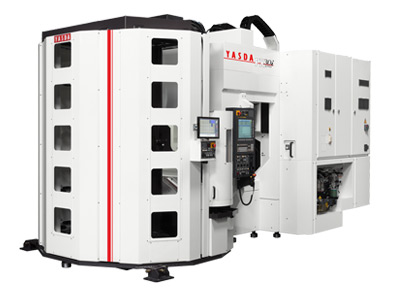
- Afrikaans
- Albanian
- Amharic
- Arabic
- Armenian
- Azerbaijani
- Basque
- Belarusian
- Bengali
- Bosnian
- Bulgarian
- Catalan
- Cebuano
- Corsican
- Croatian
- Czech
- Danish
- Dutch
- English
- Esperanto
- Estonian
- Finnish
- French
- Frisian
- Galician
- Georgian
- German
- Greek
- Gujarati
- Haitian Creole
- hausa
- hawaiian
- Hebrew
- Hindi
- Miao
- Hungarian
- Icelandic
- igbo
- Indonesian
- irish
- Italian
- Japanese
- Javanese
- Kannada
- kazakh
- Khmer
- Rwandese
- Korean
- Kurdish
- Kyrgyz
- Lao
- Latin
- Latvian
- Lithuanian
- Luxembourgish
- Macedonian
- Malgashi
- Malay
- Malayalam
- Maltese
- Maori
- Marathi
- Mongolian
- Myanmar
- Nepali
- Norwegian
- Norwegian
- Occitan
- Pashto
- Persian
- Polish
- Portuguese
- Punjabi
- Romanian
- Russian
- Samoan
- Scottish Gaelic
- Serbian
- Sesotho
- Shona
- Sindhi
- Sinhala
- Slovak
- Slovenian
- Somali
- Spanish
- Sundanese
- Swahili
- Swedish
- Tagalog
- Tajik
- Tamil
- Tatar
- Telugu
- Thai
- Turkish
- Turkmen
- Ukrainian
- Urdu
- Uighur
- Uzbek
- Vietnamese
- Welsh
- Bantu
- Yiddish
- Yoruba
fully automated car wash
The Rise of Fully Automated Car Washes Revolutionizing Vehicle Cleaning
In recent years, the automotive industry has witnessed significant advancements in technology, leading to the emergence of fully automated car washes. These innovative systems are transforming the way we clean our vehicles, offering unparalleled convenience, efficiency, and environmental benefits. As we move further into the 21st century, it’s crucial to explore the features, advantages, and future prospects of fully automated car washes.
At its core, a fully automated car wash utilizes advanced technology to deliver a thorough cleaning experience without the need for human intervention. These systems typically employ a combination of high-pressure water jets, soft cloths, and a variety of cleaning solutions to effectively remove dirt, grime, and other contaminants from vehicles. Customers simply drive their vehicles into the wash bay, and the automated system takes over, ensuring that every inch of the car is cleaned to perfection.
One of the primary advantages of fully automated car washes is the time efficiency they offer. Traditional car washes often require long waiting times, with customers standing outside or remaining inside their vehicles for extended periods. In contrast, automated washes can typically clean a vehicle in just a few minutes. This speed is particularly appealing to busy individuals who may not have the luxury of spending a significant amount of time washing their cars. By streamlining the process, fully automated car washes cater to the fast-paced lifestyles of modern consumers.
Moreover, these car washes are designed to provide a consistent and high-quality cleaning experience. With sophisticated technology that minimizes human error, the results are often superior to what can be achieved through manual washing. The use of specialized brushes and cleaning agents ensures that even the most stubborn dirt is removed, leaving vehicles looking shiny and new. This consistent quality builds trust with customers, encouraging repeat business and fostering a loyal customer base.
fully automated car wash

In addition to convenience and quality, fully automated car washes are increasingly focused on environmental sustainability. Many systems are engineered to use water more efficiently compared to traditional washing methods. For instance, some automated washes recycle water, significantly reducing overall consumption. Additionally, eco-friendly cleaning solutions are often utilized, minimizing the environmental impact of detergents and chemicals. As consumers become more environmentally conscious, choosing automated washes that prioritize sustainability can enhance customer loyalty and attract eco-aware clientele.
As technology continues to advance, the future of fully automated car washes appears bright. Innovations such as machine learning and artificial intelligence are being integrated into these systems, enabling them to adapt and improve over time. For example, AI can analyze customer preferences and tailor the washing process to meet specific needs, whether that’s a focus on shine, protection, or specific cleaning challenges like bird droppings or tar stains.
Furthermore, the rise of connected technology means that car wash systems can incorporate user-friendly apps, allowing customers to schedule appointments, pay electronically, and even receive updates on wait times. This integration of technology into the customer experience enhances convenience and creates a seamless interaction with the service provider.
In conclusion, fully automated car washes are revolutionizing the vehicle cleaning industry by offering convenience, efficiency, and environmental sustainability. As technology continues to evolve, it is likely that these systems will become even more sophisticated, providing enhanced customer experiences and driving further growth in the market. For consumers seeking a quick, high-quality, and eco-friendly vehicle cleaning solution, fully automated car washes represent the future of car maintenance. As we embrace these advancements, it’s essential to recognize the significant impact they will have on our daily lives and the environment.
-
Xingtai Dingyuan Carwash Equipment Supplier StoryNewsAug.24,2025
-
Xingtai Dingyuan Car Wash Manufacturers StoryNewsAug.24,2025
-
Wholesaler’s Choice DY-QC-9 Tunnel Car Washing MachineNewsAug.24,2025
-
The Efficient Solution For Sourcing Commercial Car Washing MachinesNewsAug.24,2025
-
DY-QC-5 Automatic Car Washing Machine Dingyuan IntelligentNewsAug.24,2025
-
DY-QC-5 Automatic Car Washing Machine For WholesalersNewsAug.24,2025



